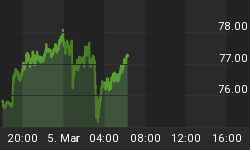We can expect more volatility (up and down) over the next ten days or so. The Federal Reserve has their annual Jackson Hole conference this week. Ben Bernanke is due to deliver public remarks on Friday. In 2010, the Fed used Jackson Hole as a forum to signal a second round of money printing was on the way (known as QE2). Relative to what we may get on Friday, we tend to agree with the comments below from an August 23 Forbes article:
Carlos Sanchez, associate director of research with CPM Group, noted that the Fed's decision Aug. 9 to put a timestamp on how long they will hold rates at near-zero was a change from previous comments. "That in itself was a very strong signal. I don't know if the Fed will be so quick to act with another policy tool to help stimulate economic activity - it takes time to trickle through the larger economy," he said.
Our recent study of QE2 winners hinted at the following:
- The market believes QE3 is not in the short-term cards or
- The market believes another round of quantitative easing (QE) will not be effective, longer-term, in boosting asset prices.
Monday's session also featured unimpressive moves by QE2 winners. We will continue to monitor QE-friendly assets this week. While we believe the odds have shifted over to the bear's camp, strong countertrend rallies often occur in the context of a bear market.
The video below expands on the topics in the August 22 article Dip Buyers Beware: Odds Favor Lower Lows in Stocks. Numerous long-term bearish signals recently appeared on weekly and monthly charts. Since monthly signals are more important if they are still present at the end of the month, the video focuses on weekly charts. From a fundamental perspective, weakness, as shown in the video, in transportation stocks (IYT), basic materials (XLB), and small-caps (IWM) hints at weaker than expected economic growth in the coming quarters. The fact that emerging markets (EEM), Canada (EWC), and Sweden (EWD) are also flashing red flags speaks to the increasing odds that a global bear market has kicked-off, rather than weakness being isolated to a particular sector or region of the globe.
We will continue to hold gold (GLD), silver (SLV), and a small allocation to bonds (TLT) until conditions improve. The Fed has bailed out the markets in the past - we will see what they have in store for us on Friday.















